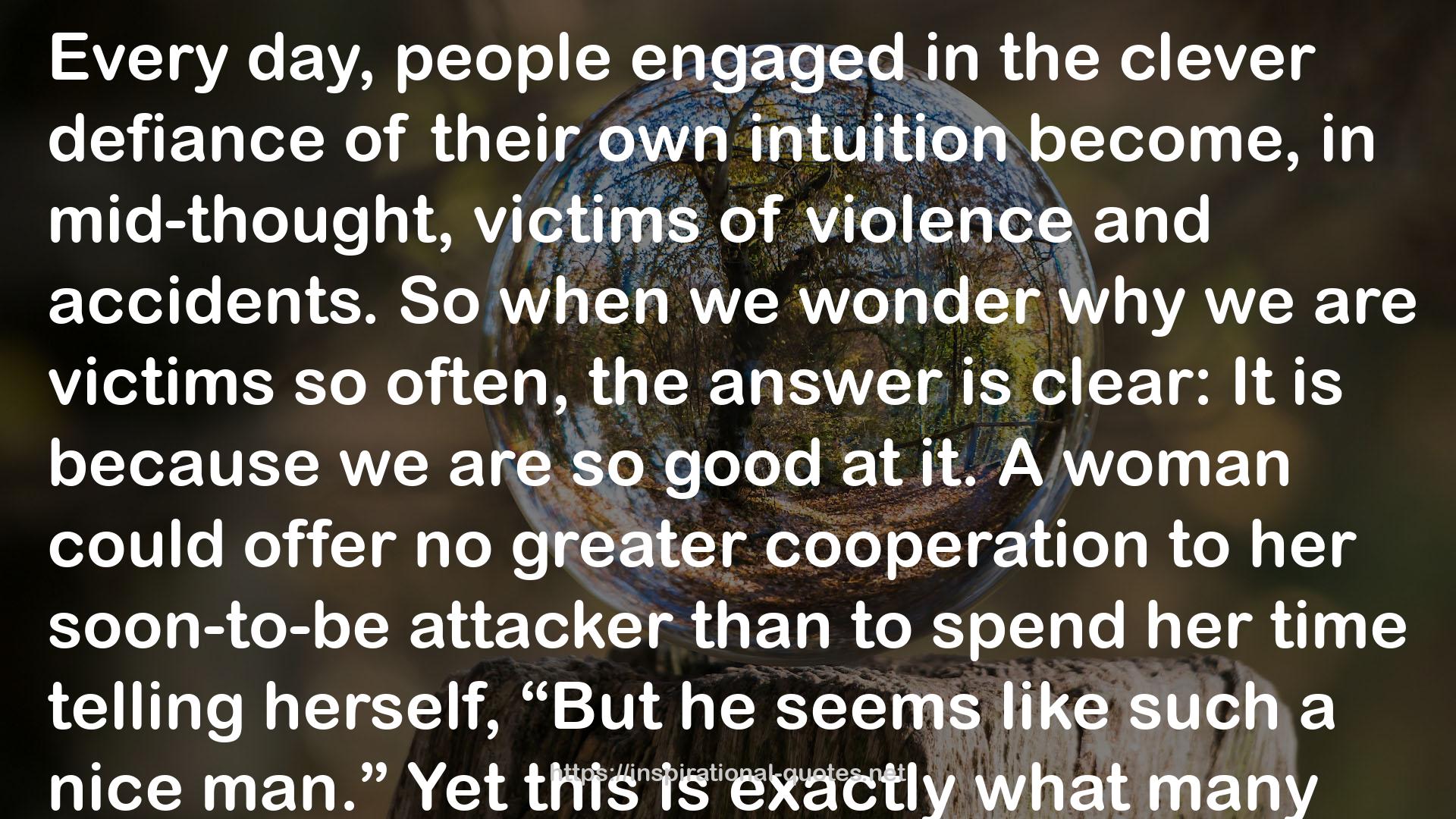" Every day, people engaged in the clever defiance of their own intuition become, in mid-thought, victims of violence and accidents. So when we wonder why we are victims so often, the answer is clear: It is because we are so good at it. A woman could offer no greater cooperation to her soon-to-be attacker than to spend her time telling herself, “But he seems like such a nice man.” Yet this is exactly what many people do. A woman is waiting for an elevator, and when the doors open she sees a man inside who causes her apprehension. Since she is not usually afraid, it may be the late hour, his size, the way he looks at her, the rate of attacks in the neighborhood, an article she read a year ago—it doesn’t matter why. The point is, she gets a feeling of fear. How does she respond to nature’s strongest survival signal? She suppresses it, telling herself: “I’m not going to live like that, I’m not going to insult this guy by letting the door close in his face.” When the fear doesn’t go away, she tells herself not to be so silly, and she gets into the elevator. Now, which is sillier: waiting a moment for the next elevator, or getting into a soundproofed steel chamber with a stranger she is afraid of? The inner voice is wise, and part of my purpose in writing this book is to give people permission to listen to it. "
― Gavin de Becker , The Gift of Fear: Survival Signals That Protect Us from Violence
